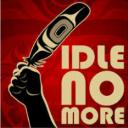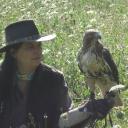Yahoo Answers is shutting down on May 4th, 2021 (Eastern Time) and beginning April 20th, 2021 (Eastern Time) the Yahoo Answers website will be in read-only mode. There will be no changes to other Yahoo properties or services, or your Yahoo account. You can find more information about the Yahoo Answers shutdown and how to download your data on this help page.
Trending News
Atheists, about time you admitted you may be wrong?
Probably four to eight scientists and astronomers in the World truly grasp the majority of the latest Science, and even then not in entirety as they tend to specialise.
So if we ordinary atheists cling to scientific explanations of the origins of the Universe, are we not vaguely following spoon-fed popular information with only a partial understanding? Isn't that what's called a belief system led by prophets? I believe in the big bang theory 'cos Stephen Hawking and Carl Sagan said I should - but if I try and read 'A Brief History of Time' I fall asleep at page 5.
Are we absolutely following paths of superstitious ignorance, or, are we so well versed in all the detail of Science that we, each of us, can take pencil and paper and prove that Terry Pratchett was off the mark? (sneaking feeling he wasn't).
I think we are in precisely the same position as religious faiths, also, we are leaving the guidance and discovery to a select studious few (relatively) and we hang on every word of the New Scientist just as ignorantly as any other ordinary Joe or Jane in the World goes to Mass or Hannekka and reads the Talmud for comfort and guidance.
I don't think we can sneer at anybody, at least the Red Indians (all right, Native Americans) honoured their noble meal before they ate it, and saw the good power of Nature all around them.
At the very least, I for one will never again argue with any believer of God(s) on the grounds I definitely, through my own repeated experiments and research, have proved anything else. I now realise I too, am a 'believer' in precepts based on partial drip-feed information and my own (limited) understanding.
Don't get me wrong; I think I am on the right tack, I hold to scientific method, but I have very little of my own proof and now, even less ability to comprehend the giant machine, that is the Universe.
21 Answers
- ?Lv 78 years agoFavorite Answer
The universe is the way it is, whether we like it or not. There's no reason that the universe has to conform to what we'd like or what makes sense to us.
A scientific theory is a unifying concept that explains a large body of data. It is a hypothesis that has withstood the test of time and the challenge of opposing views. The Big Bang Theory is supported by extensive empirical data. There is no reliable data supporting the some-god-did-it hypothesis, and especially not the Yahweh-did-it hypothesis.
Six prominent facts supporting the Big Bang Theory are:
** The red shift of almost all galaxies, getting greater as their distance increases.
— This shows that the galaxies are flying away from each other, at greater speeds at greater distances.
** The cosmic microwave background radiation.
— This is a remnant of the radiation from the Big Bang, and has cooled over time to the exact temperature predicted.
** The variations in the cosmic microwave background radiation.
— These variations fit theoretical predictions, and were caused by quantum differences near the start of Big Bang.
** The proportions of the lightest elements and isotopes.
— This helps show that the calculations for nuclear interactions immediately following the Big Bang are correct.
** The changes in galaxies as we look further away (and thus back in time), with distant galaxies more primitive and having fewer heavy elements.
— This shows some of the changes in the universe since the Big Bang, and confirms the deep time of the universe.
** The change in the apparent speed of type 1a supernova as we look back in time, with distant supernova exploding more slowly.
— This shows that the light has been stretched out by the expansion of space over billions of years.
If The Big Bang Theory changes due to new reliable evidence, then I will change what I conclude about how the universe began.
It used to be that science couldn't answer the question about the origin of the universe or of the Big Bang, but that didn't mean we should make up an answer (such as a god) and say that it was the cause. Within the last few decades scientists have discovered some good answers. Of course, a scientific explanation is more complex than simply saying, "God did it."
Quantum mechanics shows that "nothing," as a philosophical concept, does not exist. There is always a quantum field with random fluctuations.
There are many well-respected physicists, such as Stephen Hawking, Lawrence Krauss, Sean M. Carroll, Victor Stenger, Michio Kaku, Alan Guth, Alex Vilenkin, Robert A.J. Matthews, and Nobel laureate Frank Wilczek, who have created scientific models where the Big Bang and thus the entire universe could arise from nothing but a random quantum vacuum fluctuation in the quantum field -- via natural processes.
In relativity, gravity is negative energy, and matter and photons are positive energy. Because negative and positive energy seem to be equal in absolute total value, our observable universe appears balanced to the sum of zero. Our universe could thus have come into existence without violating conservation of mass and energy — with the matter of the universe condensing out of the positive energy as the universe cooled, and gravity created from the negative energy.
I know that this doesn't make sense in our Newtonian experience, but it does in the realm of quantum mechanics and relativity. As Nobel laureate physicist Richard Feynman wrote, "The theory of quantum electrodynamics describes nature as absurd from the point of view of common sense. And it agrees fully with experiment. So I hope you can accept nature as she is — absurd."
For more about the Big Bang and its implications, watch the video at the 1st link - "A Universe From Nothing" by theoretical physicist Lawrence Krauss, read an interview with him (at the 2nd link), get his new book (at the 3rd link), or read an excerpt from his book (at the 4th link). And, see the 5th link for "Quantum scientists make something out of nothing."
-
Source(s): http://tinyurl.com/y8j6tpa http://www.samharris.org/blog/item/everything-and-... http://www.amazon.com/Universe-Nothing-There-Somet... http://www.scientificamerican.com/article.cfm?id=u... http://tinyurl.com/agfvch8 http://www.godlessgeeks.com/WhyAtheism.htm#bigbang http://www.stellarhousepublishing.com/originsofchr... http://freethoughtblogs.com/wwjtd/2012/01/19/will-... http://www.atheismresource.com/2010/jesus-never-ex... http://www.godlessgeeks.com/JesusExist.htm - 8 years ago
Natives honouring animals that have given their life for our sustenance, has NOTHING to do with gods. Most Native Nations have NO concept of gods in their Traditional beliefs, and are by default....atheists.
Any person....atheist, religious, whatever....should take all science with a grain of salt, until all areas of exploration have been exhausted. Science proposes theories, based on the evidence at hand, then performs tests to prove those theories. New evidence is constantly discovered, so theories change. That is what science is.
A Brief History of Time, was an interesting read. I don't see how you couldn't get past the first five pages....unless you just didn't want to.
Source(s): Ojibwe....NO gods here. Nor are my traditional beliefs in any sort of conflict with evolution - Kit FangLv 78 years ago
I doubt many astronomers fully understand the majority of the latest science, given that many of the more recent great discoveries have not been in the field of astronomy.
You may be ignorant, but don't tar us all with the same brush. Some of us read actual scientific journals, and the books behind the theories of Hawkins and the like, rather than just blindly following whatever they say. I don't sneer at anyone - if you need a belief in God to get you through the day, then that's what you need and who am I to say your choice of lifestyle is wrong when it has no impact on me. I will argue with anyone who tries to enforce their religion on me or convert me to their religion, but otherwise I say live and let live. I do not agree with you, however, that I am equally blind as those who just go along with whatever their religious leaders say, having read both a number of religious books, and more than my fair share of scientific theories!
- JosephLv 68 years ago
The difference is, that the Scientists we believe are masters in their respective fields, have done countless experiments and submit peer reviewed articles to back up what they preach (if you will). They update their findings and opinions with each new discovery, and challenge new ideas.
A person does not have to understand the very ins and outs of evolution to understand that it happened. Everyone knows the Earth rotates, and travels round the Sun, but I'd wager not everyone truly understands the mechanisms behind it. And so on, and so forth.
Religions, on the other hand, seem to hang on the texts of prophets and holy men, mostly written thousands of years ago, translated and edited so that the original meanings may well have been lost or distorted.
- How do you think about the answers? You can sign in to vote the answer.
- ThomasLv 68 years ago
It's about time you admitted you used an outdated and racist term: "Red Indians". Come on! I'm a tribal member and nobody says "Red Indians." And I do not have any organized religious beliefs. This has nothing to do with if I give thanks for what I have (e.g. food, family, etc.) or if we show respect to Creation. I don't believe in any Father figure spirit of the Abrahamic faiths and none of my ancestors did either. Some prayed toward the sun as a powerful force, but this wasn't a god, either.
There is complexity in the universe and the mystery of it is amazing enough, I don't need anything to do with the Abrahamic faiths with their death-cult beliefs. Thanks.
- Anonymous8 years ago
Science is a discipline of relatively recent development and relatively limited utility. The people that came up with it never intended it to be some kind of replacement or overthrower of religion. On the contrary, their attitude was that observation and experiment of and with physical reality itself by means of empirical investigation was the most proper way to understand the mind of the god they worshipped. The bible, they argued, was just a book written by men, wheras the universe was, in their theology, indisputably authored by god. Which then was the most appropriate for careful study.
- TzeenchLv 58 years ago
Well I think we can all admit that we may be wrong about some things but we aren't really "following paths of superstition and ignorance". like many other people I know how to evaluate the evidence when it is presented. I accept an idea if it is the best explanation with the available evidence.
Edit- I can't speak for all Atheists, because not all Atheists have the same worldviews as me, but as a skeptic, I am rarely "spoon fed popular information".
- AsdzáníLv 78 years ago
I don't know.
I had no difficulty following " a Brief History of Time". Made perfect sense to me.
And I don't know what having respect for other living things has to do with belief in a "god". We believe in honoring and respecting all our fellow living things, but don't worship any gods.
Nor do we mock those who choose to do so.
Like I said, we're all about respect for others.
Source(s): Navajo - 8 years ago
What I find interesting about your question is not your ignorant rant but the fact you stated that "Atheists may be wrong" which is uplifting as you are implying that we may be right. This is not a leap of faith on your behalf but the fact you are facing up to reality good on you for at least being honest.
- 8 years ago
So I admit that sometimes it's hard to understand, but from what I do understand it all makes sense.
The main reason I am an atheist is because something as simple as fossils disprove Christanity








